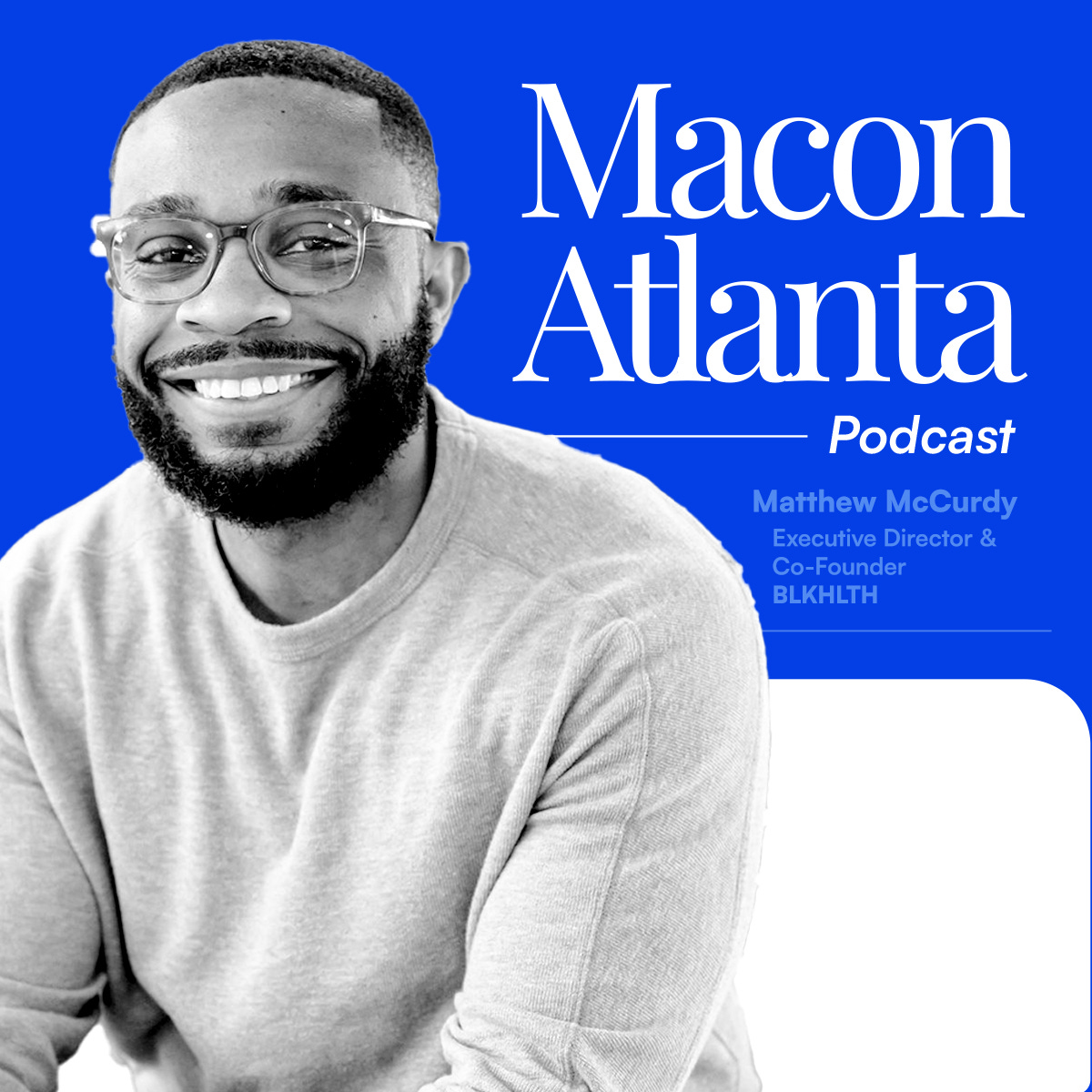Beyond Disparities: Choosing Life with Matthew McCurdy of BLKHLTH
A better way to improve public health...for everyone
Matthew McCurdy, MPH (he/him), is a dedicated public health practitioner focused on creating innovative solutions to improve the health and well-being of marginalized communities. He has successfully designed and executed strategies for addressing complex health challenges across academic, nonprofit, and governmental sectors. As the Executive Director and Co-Founder of BLKHLTH, Matthew leads initiatives aimed at dismantling racism and improving health for Black communities. Originally from Atlanta, Georgia, Matthew holds degrees from Georgia State University and Emory University’s Rollins School of Public Health.
-
In this week's episode, I sat down with Matthew McCurdy, Executive Director and Co-Founder of BLKHLTH, an Atlanta-based nonprofit working to dismantle racism and improve health for Black communities.
Matthew's journey from Emory University's Rollins School of Public Health to founding BLKHLTH shows someone putting his work where his heart is – tackling the health disparities that follow racial lines dating back to our country's origins.
Our conversation explored:
The definition of public health.
Police violence as a public health issue, racism as a structural determinant of health, and what success in health equity work truly looks like.
We also dive into challenging topics like the intersection of capitalism and racism, civic disengagement, and the balance between personal agency and systemic factors.
Below are some of my reflections, and you can listen to the full episode here:
—
The Question We Must Answer - Do We Care?
Matthew compels us to ask an essential question: Do we actually care about the health and life expectancy disparities that follow racial patterns rooted in our country's history of slavery? And if we care, what are we willing to do about it?
If We Care - What Do We Do?
In the episode we examine an enduring tension: a lever we’re told can help is higher taxes and increasing government intervention - but many people don't trust that forking over more of their income will create real change.
This leads to questions that Matthew addresses: Can we reach more equal health outcomes in our current capitalist system? Or do we need something more revolutionary? How far must we go?
These questions feel bigger than any one person can solve. Still, Matthew envisions a world where we judge a government’s effectiveness by the life expectancy of its people – and where how long you live isn’t determined by your zip code and race.
What We Should Be Rooting For in the AI Era - Beloved Community
Macon Atlanta podcast episodes often reflect on the notion that AI is an emerging super-powerful tool that will help us reach whatever objective we want for ourselves and for our society.
This conversation with Matthew helps remind me what we should be rooting for. We should want an Atlanta where the life expectancy isn’t 20+ years shorter because you live four miles south and you’re Black. That's not the beloved community that the Atlanta experiment is in pursuit of. We can and must do better.
The Case for Building Coalitions
As a person from the dominant archetype—a straight white male—I notice how much different it is to participate in the discourse when I feel like I'm on the same team with someone like Matthew. We’re building towards a common vision that we can be excited about for our kids and their kids.
This is in contrast to when I'm brow-beaten with shame related to my position… and I recognize that it’s complicated—the feelings of legacy colonizers shouldn't be what gets centered. And yet, we still need to work within the reality of what actually builds effective coalitions.
My hope for Atlanta is that as we discuss where to direct public & private resources and why, we remember that we’re on the same side. Our common enemy is early death and the factors that lead to it.
Let's choose life. Let's build towards a place where more people enjoy greater vitality for longer.
What did you think of this episode? I'd love to hear your reflections. And if you found value in Matthew's perspective, please consider learning more about BLKHLTH's work.





